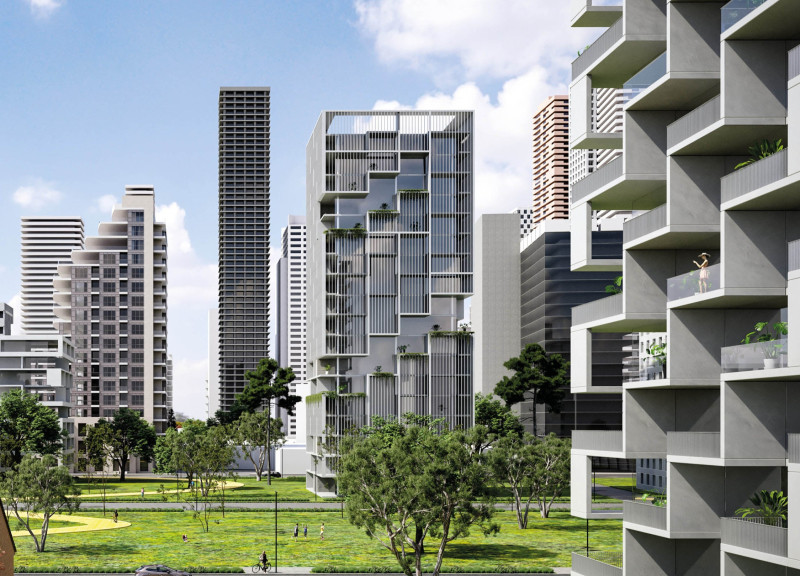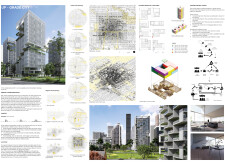5 key facts about this project
The design of Upgrade City focuses on addressing urgent housing needs in Toronto, particularly in the Midtown area. The goal is to reshape urban living by introducing modular housing types that increase density and promote inclusivity. With a central idea of urban grading, the project aims to create a well-organized urban layout that connects different neighborhoods while respecting their distinct characteristics.
Urban Grading
Urban grading is the main idea behind the design, guiding how to manage urban growth. By using effective planning methods, the design allows for a consistent approach across various masterplans. This leads to an organized integration of new housing projects, with a gradual increase in density from the urban center toward the edges. Such a strategy ensures that surrounding areas benefit and receive necessary improvements.
Modular Housing Typologies
The project presents a variety of modular housing options that cater to different community needs while keeping affordability in mind. Each housing type is designed to be flexible, making it easier to use space efficiently and adjust to changing demographics. Some of the specific housing styles identified include E Type (60 sqm Double Height), B Type (95 sqm Double Height), F Type (90 sqm Single Height), C Type (50 sqm Single Height), and D Type (120 sqm Double Height and 95 sqm Single Height), all of which contribute to the overall housing plan.
Community Engagement
A key aspect of Upgrade City is its focus on community involvement. The design includes strategies that encourage participation from local residents, investors, and government entities in the planning process. This inclusive approach helps ensure that the development reflects the needs and desires of the community, allowing various groups to contribute to shaping their urban environment.
The careful design of Upgrade City provides a structured response to the challenges of urban housing. By integrating diverse modular housing options with the existing landscape of Midtown Toronto, the project aims to create a vibrant community. This design detail supports a range of living spaces, addressing the evolving demands of urban life while promoting inclusivity and accessibility.




















































